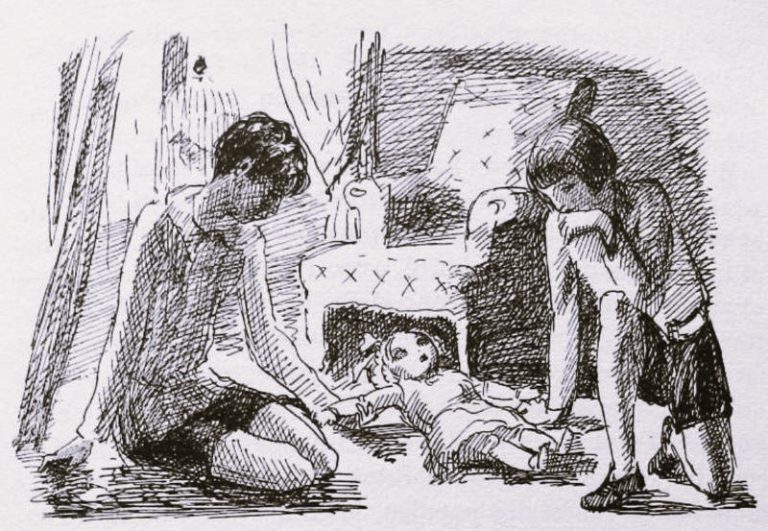

What makes a book successful? This is a question that has been asked by writers and readers for centuries. There is no one answer to this question, as different books will be successful in different ways. However, there are some qualities that all successful books share. In this blog post, we will discuss seven of the most important ones. If you are an author or a reader, make sure to keep these qualities in mind when you are choosing your next book!
An Engaging Plot
Of course, the main requirement and quality a book must have is an engaging plot. A book can be beautiful and well-written, but if the story is not interesting, it will not be successful. A good plot will keep readers hooked from beginning to end, and they will not be able to put the book down! But, you must be wondering: What makes a plot engaging? There are many factors, but one of the most important ones is suspense. A good book will always have readers guessing what is going to happen next. They should not be able to predict the ending from the beginning, or else they will lose interest quickly. Another tip for creating an engaging plot is to avoid clichés. Clichés are overused and tired ideas that have been done to death. If your plot is full of them, readers will likely get bored and put the book down.
An Error-Free Text
No matter how great your story is, if it is full of errors, readers will not be able to enjoy it. This is why it is important to make sure your text is error-free before you publish it or send it off to an editor. There are many ways to do this, but one of the most important ones is to proofread your work. This means reading it over and catching any errors you may have missed the first time around. Another way to ensure your text is error-free is to hire a proofreader. Depending on the type of your book, you can find fiction, romance, or Christian ghostwriters for hire that will be able to help you. But, if you decide to go this route, make sure to hire a professional who has experience proofreading and editing books.
Clear Speech
Isn’t it annoying when you simply cannot figure out which character is speaking? This is a problem that many authors face, especially if they are writing from the first-person point of view. In order to avoid this issue, make sure your speech is clear. Every time a character speaks, their dialogue should be indented and start on a new line. You should also use the proper punctuation and formatting for each character’s speech. For example, if a character is shouting, you would use all caps. If they are whispering, you can use italics. By following these simple tips, you can make sure your readers will always know who is speaking and won’t get confused.
The Grip Factor
What is the grip factor? It’s that feeling you get when you just cannot put a book down. You keep reading and reading, even though you have things to do and places to be. This is what all authors should aim for when writing their books. But how can you create the grip factor? One way is by using cliffhangers. Cliffhangers are plot devices that are used to end a chapter or scene on a suspenseful note. This will leave readers wanting more and eager to find out what happens next. Another way to create the grip factor is by writing short chapters. This will make the book feel fast-paced and action-packed, even if it’s not. And lastly, avoid info dumps. Info dumps are when an author includes too much information about the world, the characters, or the plot all at once. This can be very overwhelming for readers, and it will make them lose interest quickly.

Language Style
The language you use in your book is also important. It should be appropriate for the genre you are writing in and for your target audience. For example, if you are writing a children’s book, you should use simple words and sentence structures. But, if you are writing a historical novel, you might want to use more complex language to create an authentic feeling. Another tip is to avoid using too much jargon. Jargon is a specialized language that is only used by people in certain fields or with certain knowledge. Using too much of it will alienate your readers and make them feel like they are not part of the story.
Developing Characters
Your characters should be well-developed and three-dimensional. This means that they should have flaws, fears, secrets, and dreams. They should feel real to your readers and be someone they can relate to. One way to develop your characters is to give them a backstory. This is the history of your character, including their childhood, family life, and formative experiences. By including a backstory, you can make your characters feel more real and relatable. Another way to develop your characters is to use dialogue and action. Dialogue can reveal a lot about a character’s personality, while action can show how they react in different situations. “Character development is essential to crafting a successful story. Without it, the reader cannot fully understand the win-win potential of integrative negotiation between the protagonist and the plot.” – Founder of Shapiro Negotiations Institute (SNI)
A Satisfying Ending
Last but not least, your book should have a satisfying ending. This means that all loose ends should be tied up, and the reader should feel like they have a complete understanding of the story. This doesn’t necessarily mean that your book should have a happy ending. In fact, many readers prefer books with bittersweet or open endings. But, whatever ending you choose, make sure it feels earned and satisfying.
These are just a few of the qualities that every book should have in order to be successful. Of course, there are many other factors that contribute to a book’s success, but these are some of the most important. So, if you’re working on a book, make sure it has these seven qualities, and you’ll be well on your way to writing a bestseller. By following these simple tips, you can make sure that your readers will find your book engaging, enjoyable, and satisfying. And isn’t that what every author wants?






